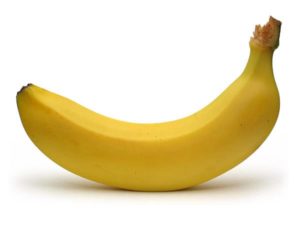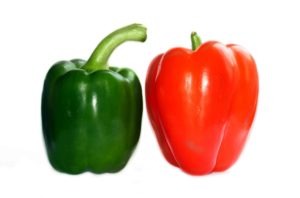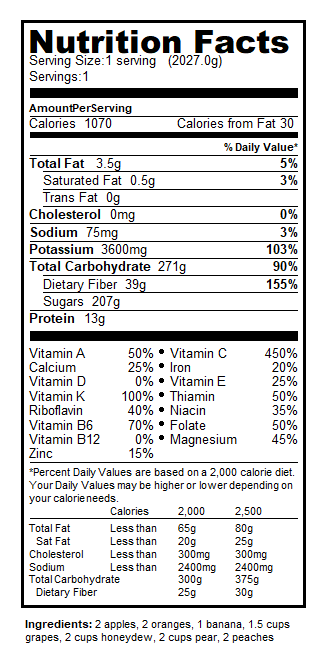Evie asks: “Is fruit more nutritious when ripe than unripe? For example, would a green banana have less potassium than a yellow one?”
The nutritional content of fruits (including those fruits we think of as vegetables) absolutely changes as the fruit ripens. Whether you would consider it more or less nutritious might depend on your definition, though!
As fruit ripens, its sugar content goes up. More sugar means more calories, of course. Technically, that means that ripe fruit provides more nutrition. (Sometimes we forget that sugar is a nutrient!)
[bctt tweet=”Even though technically less nutritious, eating slightly underripe bananas may have advantages!” username=”nutritiondiva”]
Green bananas and mangoes, in particular, contain a lot of resistant starch, which is not digested in our intestines–at least, not by us. Although our bodies don’t get any nutrition from resistant starch, it does provide a valuable food source for beneficial bacteria in the gut. As these fruit ripen, more of these starches are converted to sugar. Even though they are technically less “nutritious,” eating your bananas a little on the green side might have advantages!
The level of most minerals doesn’t change very much as fruit ripens. So the amount of potassium in a green banana is likely to be the same as in a ripe one.

Antioxidants, on the other hand, tend to increase as fruit ripens. The vitamin C content of a red (i.e., ripe) bell pepper is 50% higher than that of a green bell pepper, while the vitamin A content is almost 10 times higher . 
Finally, remember that there are lots of other factors that also affect the levels of nutrients in your produce, including the cultivar or strain, the soil composition, growing conditions, and how it is stored after it is harvested.


Don’t forget that as fruit ripens it breaks down protein into free amino acids – same with fats to fatty acids. This makes ripe fruit much easier to digest which saves energy.
Peace.
Fruit contains so little protein, it’s hard to imagine this has much impact.
Nonsense, fruits contain quite significant amounts of protein and free amino acids. Keep in mind that humans have among the lowest protein requirements of all mammals, since we’ve been physiologically optimized over millions of years to specialize on acquiring abundant energy in the form of sufficient carbohydrate, so that we can maintain a positive nitrogen balance with very low intake of protein; in fact, studies have shown that humans can maintain positive nitrogen balance with as little as 25-30 grams of protein each day. Most fruits contain around 2 grams of combined protein and amino acids on average, so a single kilogram of fruit, which is the minimum amount humans should be eating each day, will provide as much as 20 grams of protein, which is indeed quite significant. If you eat two kilograms of fruit instead, which is even better than a single kilogram, that’s 40 grams of protein, not just sufficient to maintain a positive protein balance, but to build and renew any tissues that need it.
Not sure where you’re getting your nutrition info. Here is the nutritional value of 2 kilograms of mixed fruit.
“a single kilogram of fruit, which is the minimum amount humans should be eating each day” are you confusing humans with elephants?
Interesting conversation, I’m a fruit importer specialized in heirloom ripen on tree fruits. After tasting fruits who stayed longer on trees and getting all the nutrients from the soil way longer, makes a completely different fruit from what you buy in store everyday. Just the fact of eating them makes you feel better instantaneously because of their amazing taste.
Which is why a 23 Brix peach is like cocaine, figuratively speaking.
When we eat an unripe papaya do we still get a significant amount of Beta Cryptoxanthanin
When I buy whole melons, I can never tell when they’re ripe so I usually buy fruits already cut up. They too are not usually ripe. They are hard and not sweet. Is there any nutritional value in them? Is the sugar content any less? Also strawberries, even though red, are sour. When I was a kid, 50 years ago, I loved fruits and they were sweet. Not now. What’s going on.